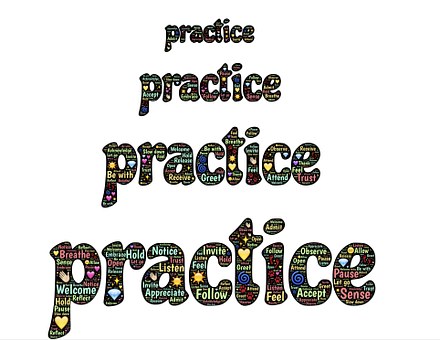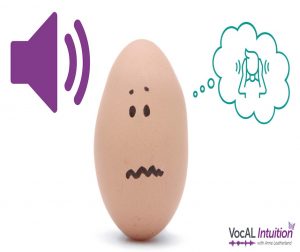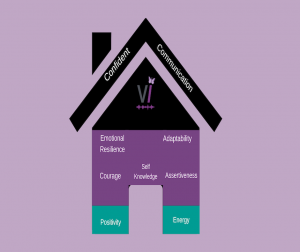 Smart Practice
Smart Practice
As professional voice users we do need to be smart about the way that we practise. i.e. making more of the time we have and working efficiently. Let’s think about why we need smart practice.
Avoiding Fatigue
We want the voice to be working efficiently and effectively. It’s often very tempting when you have a short notice audition, a concert or perhaps an exam to practise for too long. Voicing involves muscles. There’s a muscle at the centre of your vocal folds called the vocalis and lots of other body muscles that are also involved in the efficient working of your voice. The more tired you get, the more tired your muscles get and the worse your practice is going to be. Ultimately, spending two hours because you forgot to practise earlier in the week, is not really going to help you.
For smart practice you are better off doing short amounts of practice regularly. This gets those muscles used to the load that you’re giving them. It also allows for gradual increases and the build up stamina over time.
Time Constraints
If you’re a student in professional training, a professional singer, a skilled amateur or even a beginner trying to improve your voice, then you’re going to have to find time to practise. Our lives are busy these days and other things will get in the way, so we need to think about ways of making sure that that practising can happen. We also need to make that practice efficient i.e. so that meaningful things can be achieved in a set amount of time. Here are my 5 top tips for this smart practice.
1. Carve out time
If you’re a teacher and you teach young people, you’ll be very familiar with the ‘time” problem. At exam time or SATS time young people have less time than normal and you might find that practice just doesn’t occur. We need to find ways to facilitate it for them so that they can at least fit in five to 10 minutes a day. Of course, trained voice professionals will have the stamina to do more practising than beginners. So the time you actually spend depends on what your vocal load is and what it is you are working towards. The time issue can still be difficult however. To help with this think of practice as your special time rather than seeing it as a chore. It is a time when you can actually concentrate on this wonderful thing that you’re doing, whether that be speaking a monologue, preparing a talk or singing. Whatever it is, it’s your time. So carve it out. That can be difficult. I know, especially when we’re busy, but do try and organize some space and some time.
What about the “noise’
if you’re a student in a student house and you’ve got to practice your latest belty musical theatre song, you might be worried about annoying others. When they’re on the same course, then they should understand your problems so you can arrange something with them. You can do the same for them. Otherwise, try to come to an agreement with your housemates. If you have a family, explain to them that you need to do your practice. Perhaps ask somebody (your partner or a friend) to watch your children for a little bit of time every now and again, so you can actually do your practice in peace. I’m not talking about hours here. I’m thinking about ten to fifteen minutes a day. This is better than two hours once a week. If you’re trying to condition muscles and build stamina, that’s the way to do it. Ten to 15 minutes taking rest when you need to and building from there.
Prioritise
So, you’ve carved out your time. You then need to prioritise and make that time is non- negotiable. It is your special time and you have to fit it into your daily routine. If it means getting up a little bit earlier or putting it into your timetable, then do it. Practice is important to you and to paramount you getting better at your singing or speaking.
2. Plan your practice – what, why and when.
Think of the old adage, “fail to plan, plan to fail”. This is so true. if you don’t actually know what you’re going to do in your practice time, then you’ll just wander around between tasks and you won’t to achieve very much. It’s a question now of breaking things down into meaningful chunks. I always think of what, why and when – smart practice!
What?
Let’s think about what you might be practising. Certainly this shouldn’t be the same thing every time. If you break up the things that you need to do into small sections and do a different targeted thing each day, then you can make sure that you cover all bases. This is smart practice.
Monday
For instance, on Monday you might learn a new song effectively. This will require you to work at the words, the rhythm and the pitch and then put them together. Avoid just listening.
Tuesday
Tuesday could be new skill day. It could be a breathing technique, a new vocal quality; anything at all. Take your time and you work at that skill until you really know what you’re doing with it. Then apply it to a couple of phrases of a song. If need be, you can record yourself to make sure that you’ve got it right.
Wednesday
Wednesday’s, work could be embedding. You could recap your new song or embed your new skill, and put them both together if you like. It’s really important to do things in stages and to revisit new skills until you are able to use them on “auto-pilot”.
Thursday
On Thursday, you could take a closer look at words in your song or speech and the meaning of words. For example: How will you interpret those words? Do any of those words trip you up? Can you cope with the rhythms? Have you thought about the breath pattern?
Friday
On Friday work at your performance skills and see if you can put some of these things together. These are just suggestions. You might choose different days to work on, but make sure you also programme in rest days.
Why Plan?
Well, you might wish to improve technique or troubleshoot. You might plan to be learning new skills. You might be planning to just consolidate things that you’ve learned the previous week. If you know what you’re aiming for you can break down the tasks each day to suit; as opposed to just going through the same piece or speech again and again. You will achieve more and ultimately use your time more effectively. With very targeted smart practice you’ll know exactly what you’re doing and why and when you going to do it. You can make notes as you go and that will give you something to work on for the next day. Vitally, you will see your progress and stay motivated.
3. Warming Up
Remember that warming up isn’t the same as exercising and practising. You need some gentle exercises to just get your voice going before you use it in the practice session. Having said that, it’s also important to think about what you will warm up for. For instance, you will need to warm up differently for a contemporary musical theatre piece than for a classical aria. Warm -ups need to be specific in terms of effort and energy to what you’re going to do. If you’re a speaker the same thing applies. Is it going to be a very loud, dramatic performance or is it going to be a very intimate performance to camera? Your warm up, needs to prepare you accordingly.
This is important for anybody using their voice, not just singers, teachers or professional actors. If you are in business and spend a lot of time networking than your voice needs to be in good shape and you need to know how to look after it. It’s worth practising things.
To find out more about singing warm ups, have a look at that Webinar, What’s in a Warm up by Vocal Process. it will give you a whole new insight into what you’re doing.
4. Be Present

Be Present
How many of you just go through the exercises that you’ve been set automatically and can’t wait to get onto the song or speech?
Of course what you present to your audience is important but it is also about being present in the warm-up and exercises. Otherwise you’re not monitoring what you’re doing. You won’t know what it is that you need to get better at, so you’ll just going blindly into your song, or if you’re a speaker, blindly into your monologue or your speech.
For smart practice don’t just go through the motions. Take your warmup and your practice seriously. Monitor yourself. Check in with your comfort levels. Check in with whether you’re tired. If you need rest, take a rest; do ten minutes and come back again later. Nobody said that you have to practice for three hours at a time. Longer is not always better.
If you’re working towards a 45 minute set or a long performance or a play, then obviously you might want to gradually increase that practice time to increase the stamina of your voice, but to start with do small amounts and check -in on what you’re doing. To apply smart practice alter the approach as you explore. Find out what you and your voice need and then you can connect with somebody who can help you.
Too much work
If you’re not “present” and mindful of what you’re doing, you can work too hard, and fatigue yourself. Those who practise mindfulness as a relaxation exercise will know that being present helps you to be balanced and calm in what you’re doing. If you’re working for a performance, a speech, an interview and audition, of any kind, then it’s better that you’re calm and focused in what you’re doing, including your practising.
5. Enjoy your practice

Enjoy your practice
Enjoy what you’re doing. At least once a week try and discover something new about your voice. Explore a new monologue, a new song, or some new ideas that you want to present to people. Also work on your performance skills. We want to be able to communicate with people. So think about smart practice and how you are going to do that in the context of everything else that you’ve worked on.
Self Reliance
You don’t have to be perfect all the time. Record yourself and listen back. I’ve had some real fun doing that, especially when trying to sing in different styles. You can learn by listening to yourself and adapting things as you go. This also helps you be self-reliant. Then practice time becomes something very special that you can actually look forward to.
if you have a teacher, remember that your teacher facilitates but isn’t there to do it all for you. Find a way to monitor what you’re doing and take findings back to your teacher. It’s a two way street! Think about it. What gets monitored and recorded usually gets done. What gets prioritised, gets done.
Conclusion
Overall then it is pretty simple, go for smart practice.
- Carve out time
- Plan your practice – why, what, when
- Warm up appropriately
- Be present
- Enjoy!
- Ask for help if you need it.
Make it SMART – Specific, Measurable, Active, Realistic and Timed
Look out for SMART goal setting on Facebook live this week and also in a forthcoming blog.

SMART




